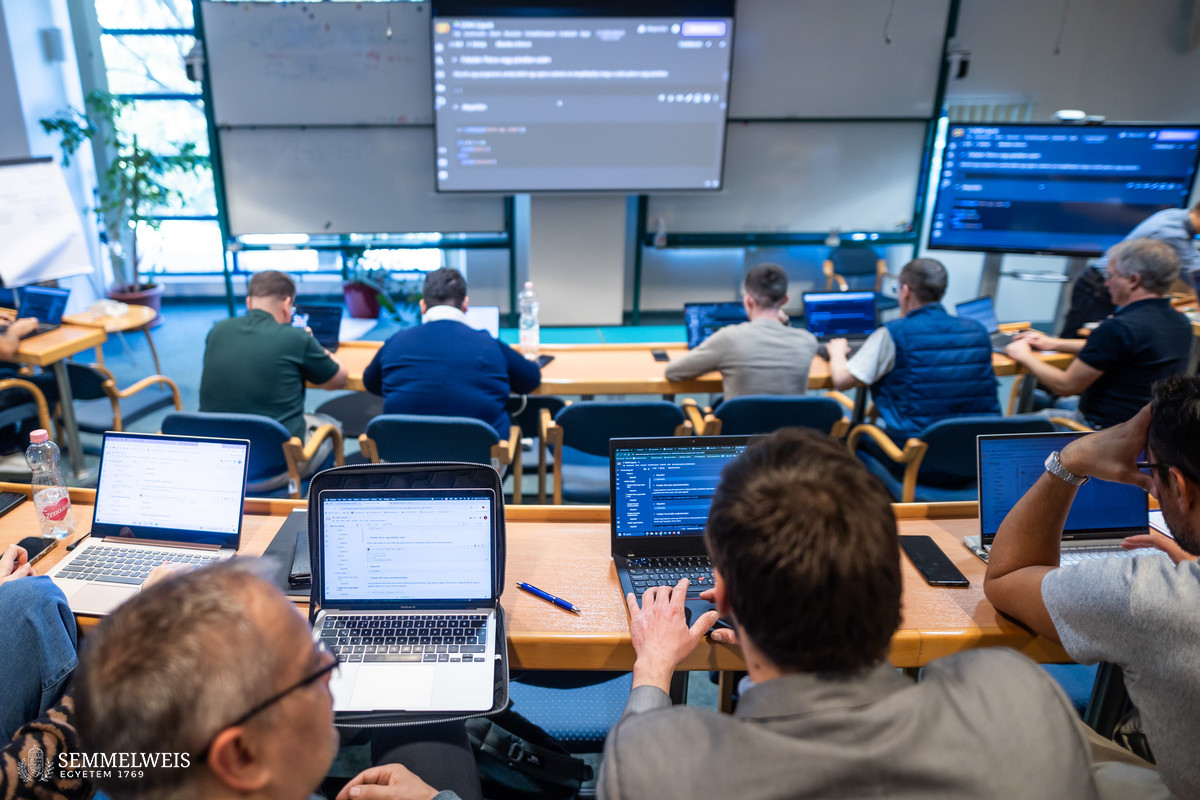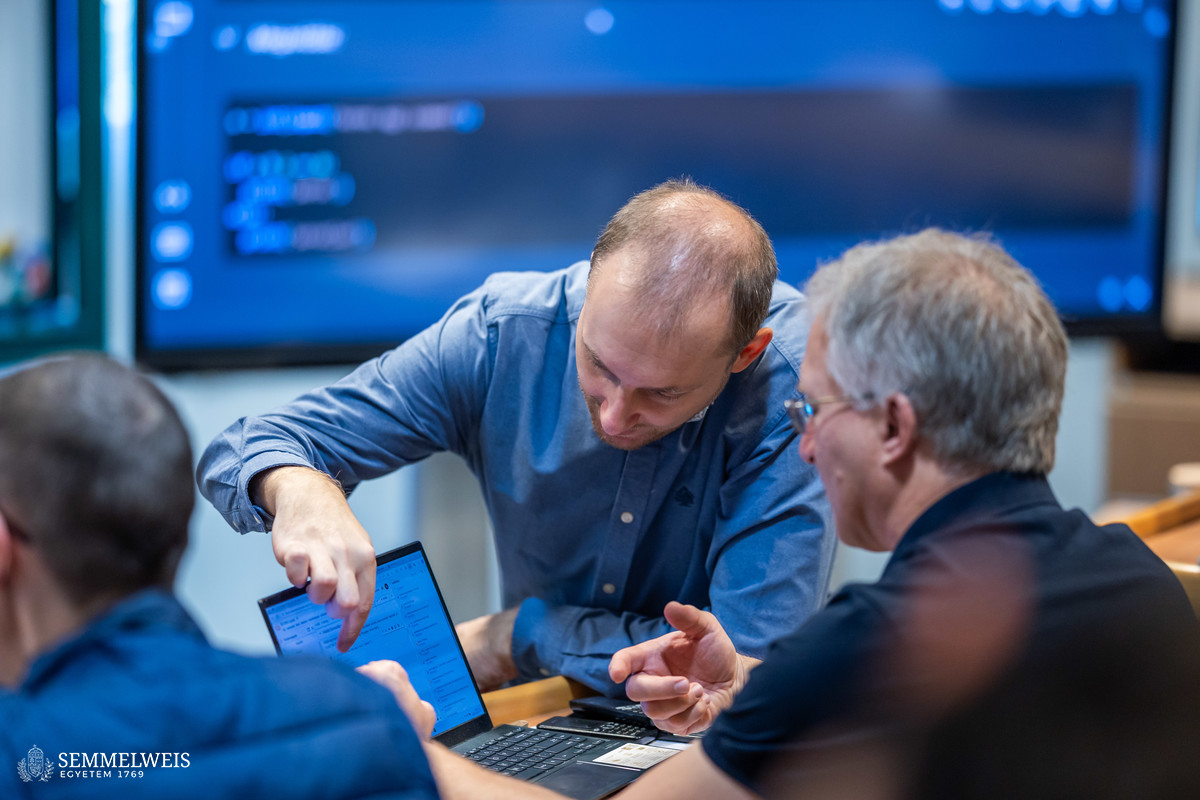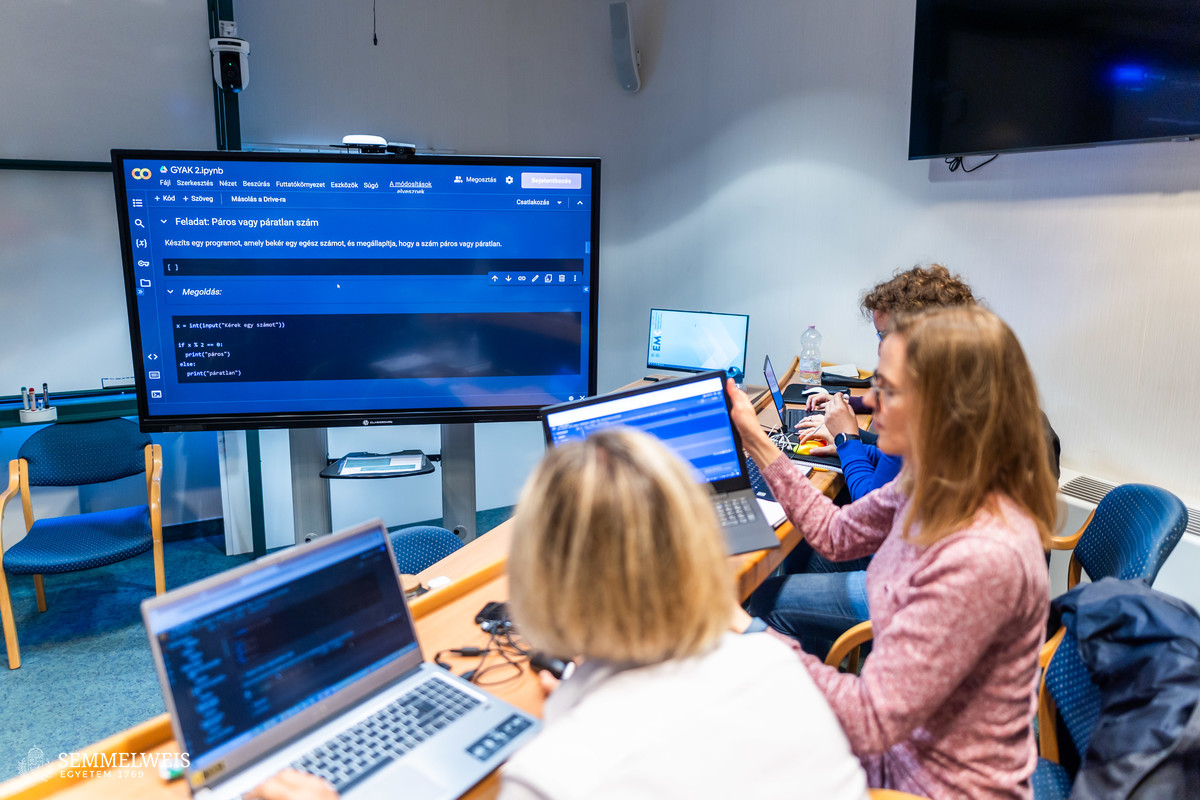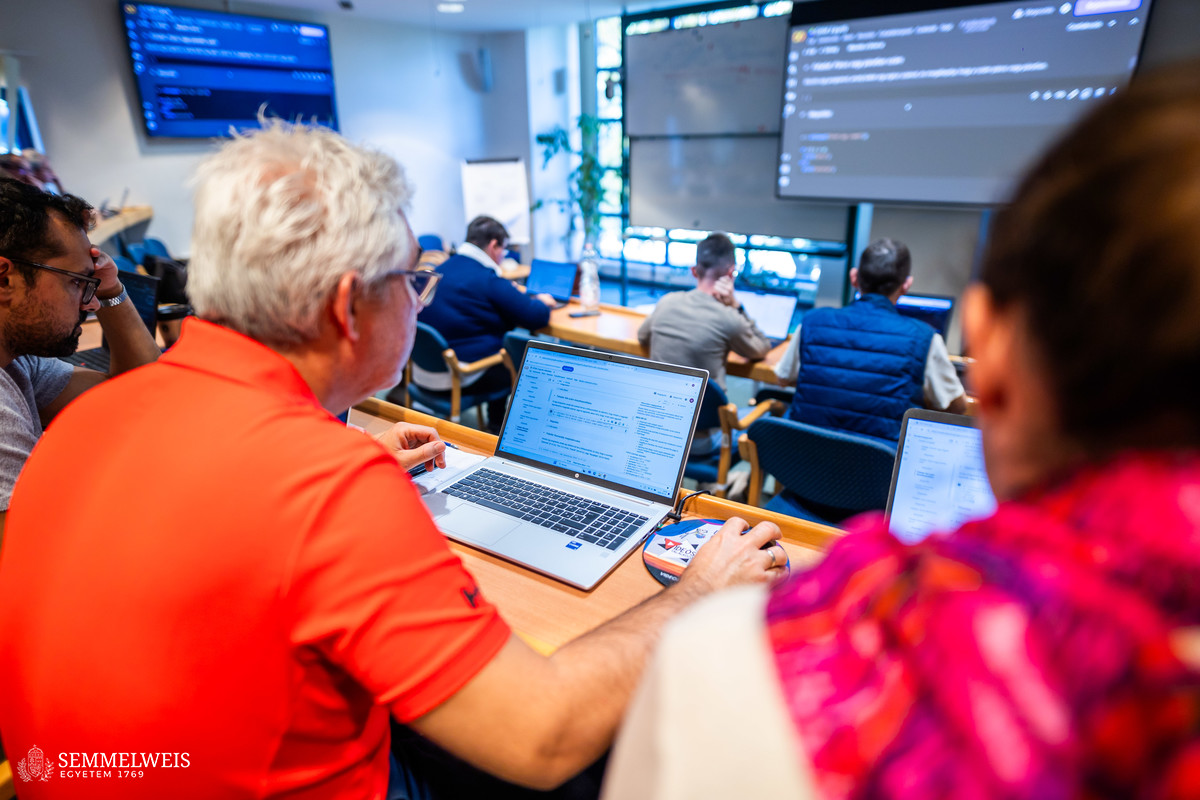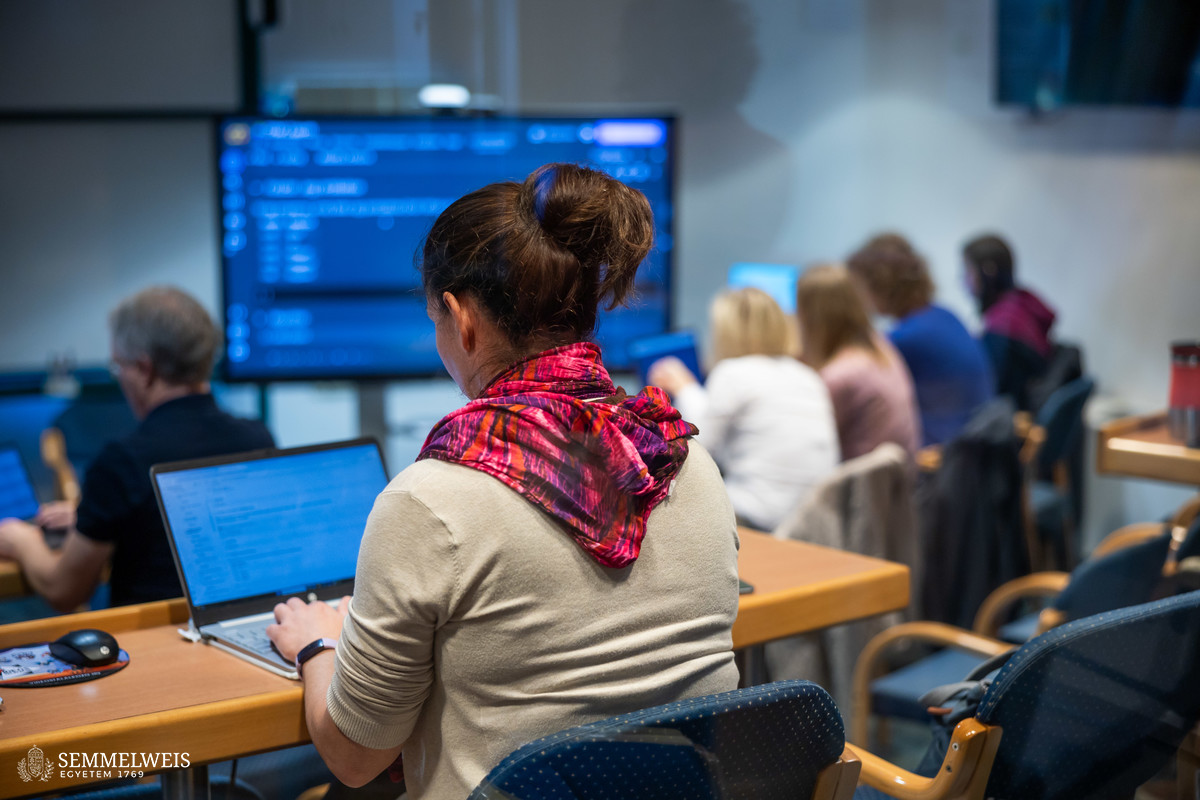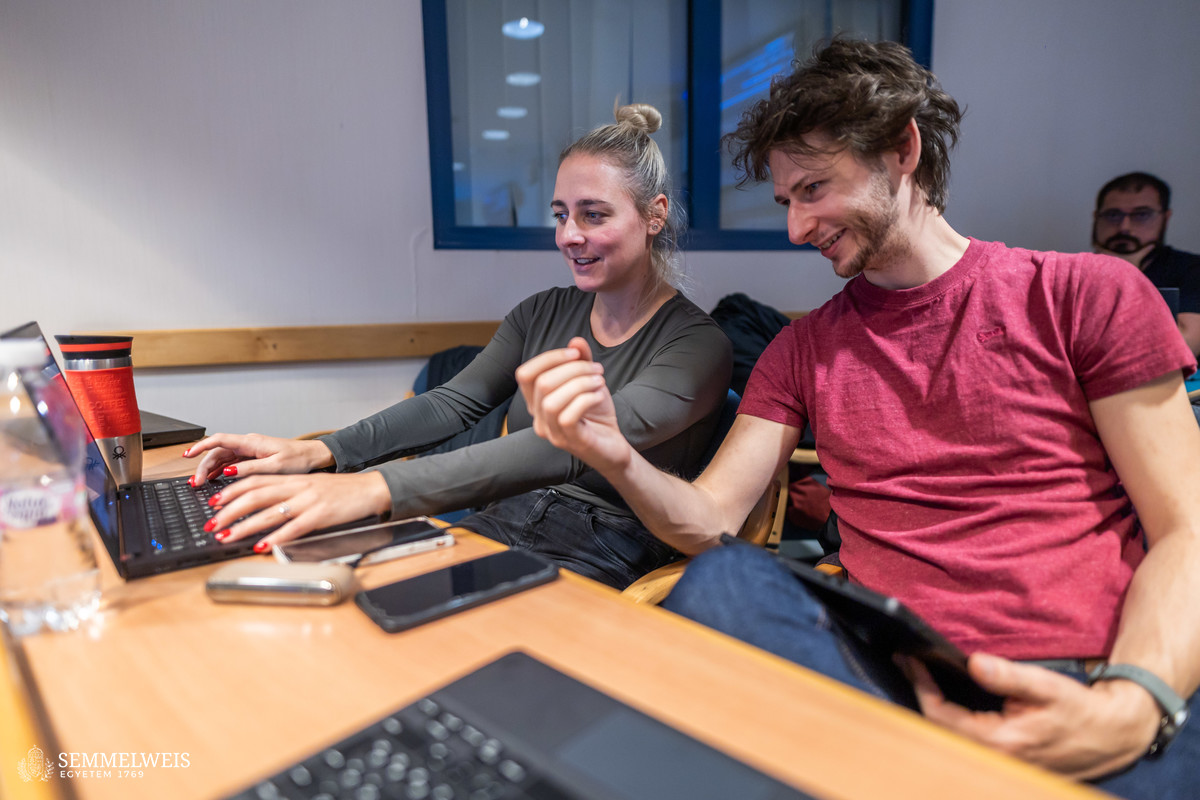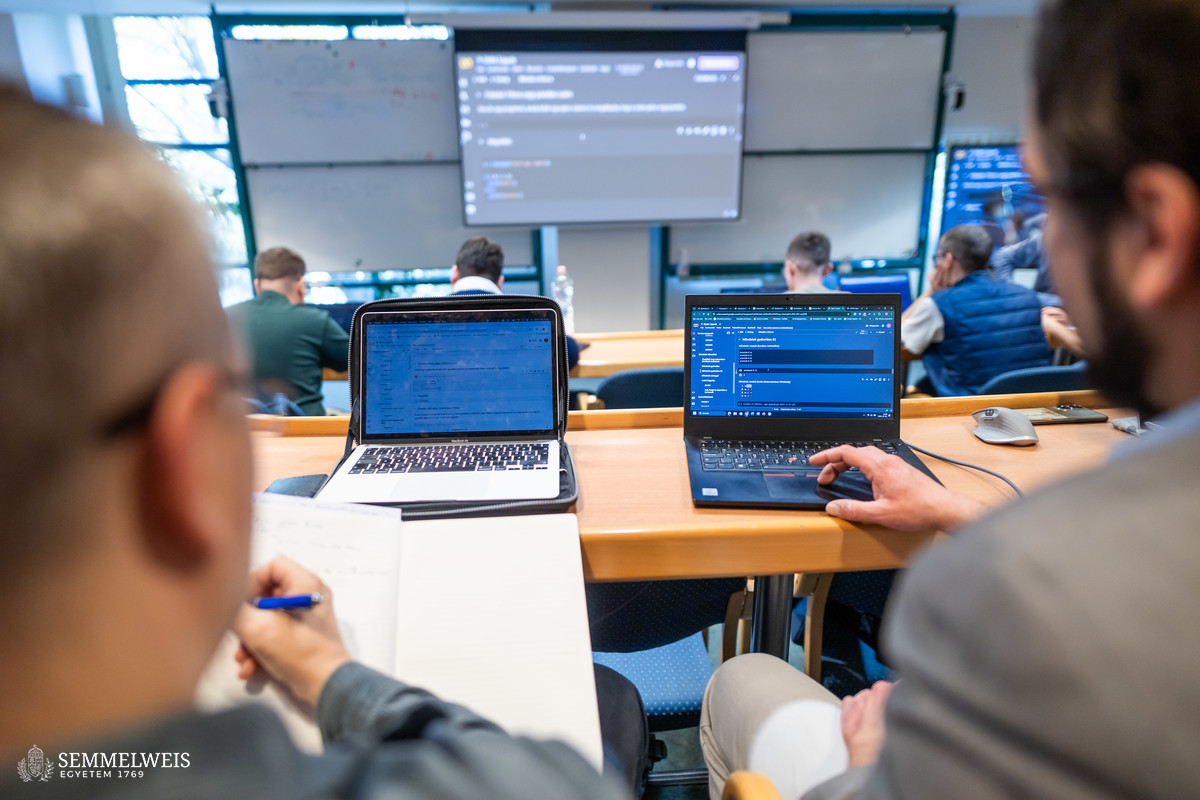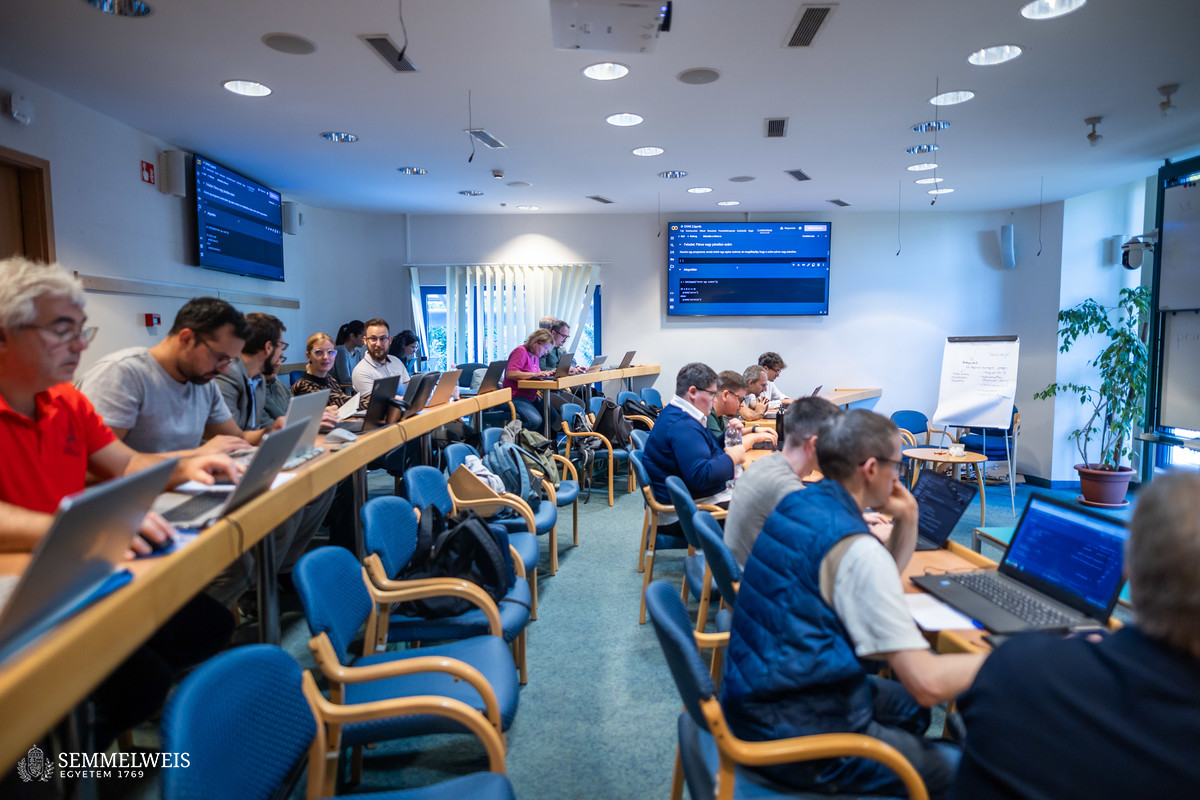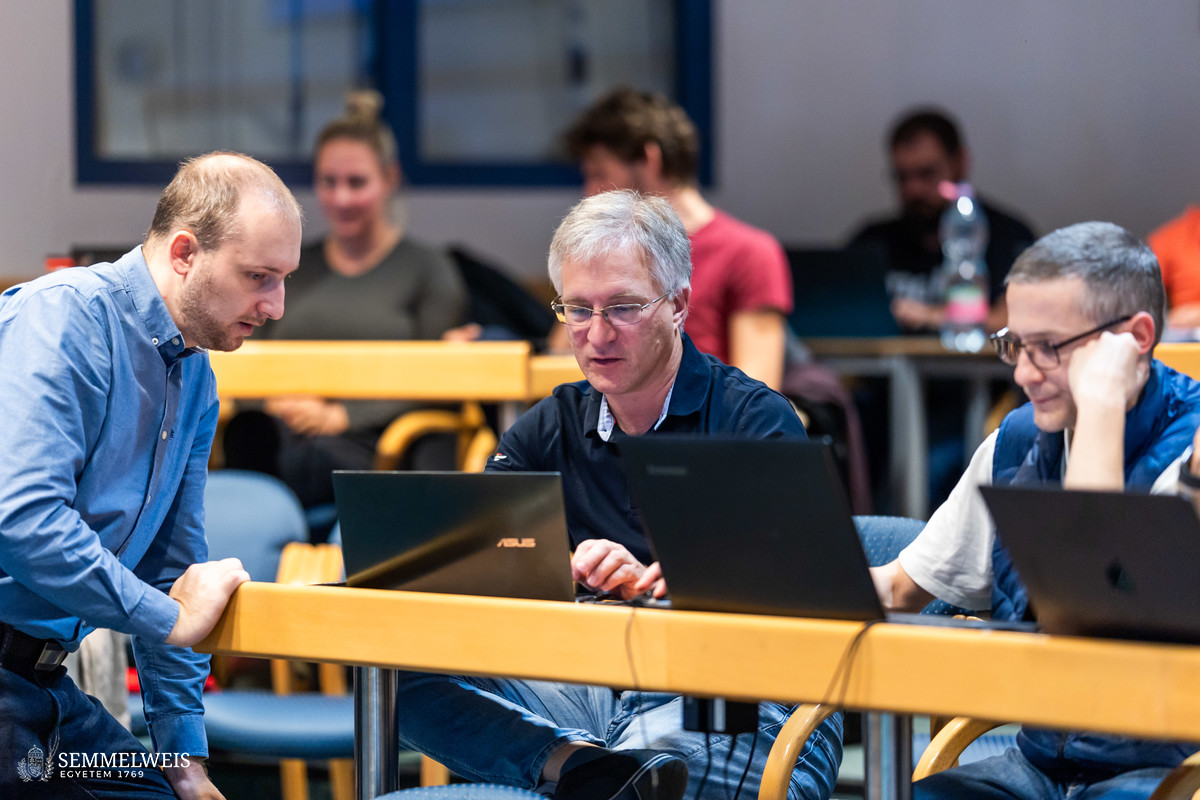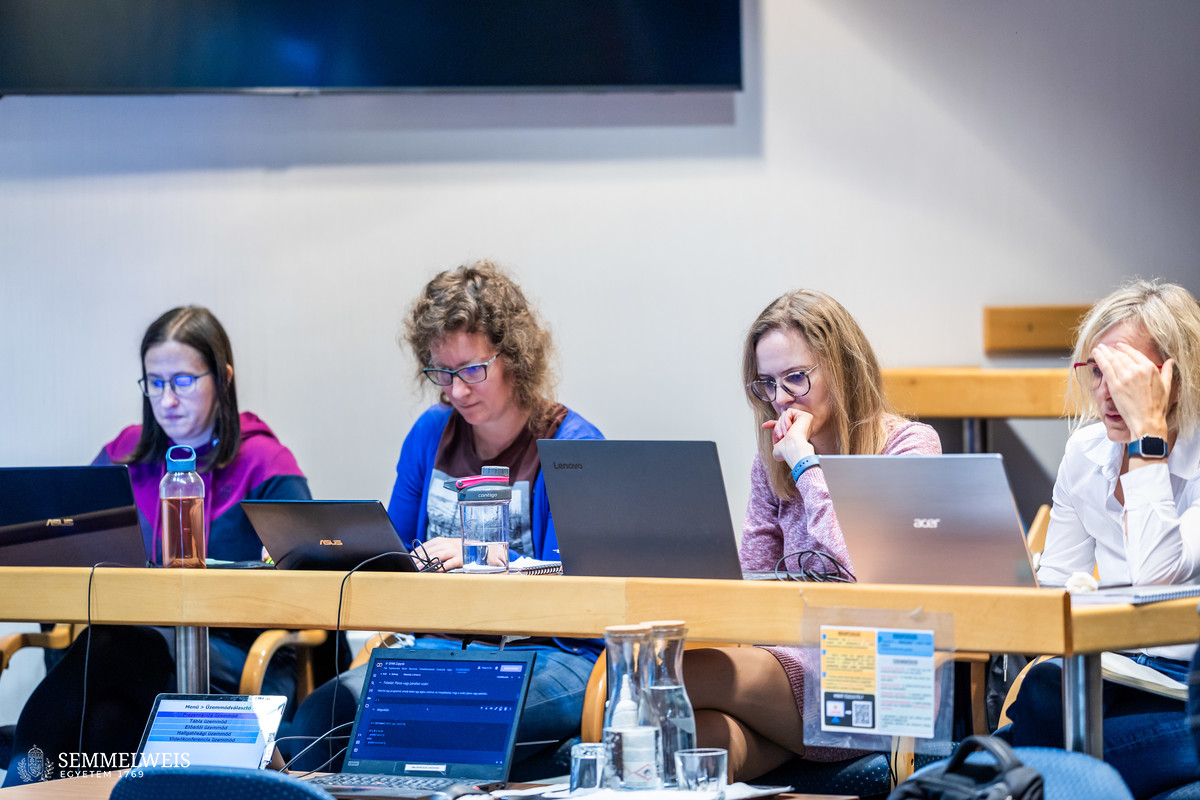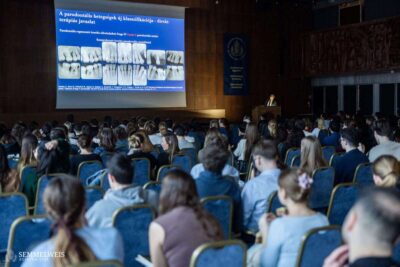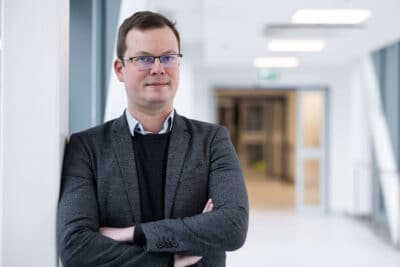A data-driven paradigm shift is taking place in healthcare globally and in Hungary, with therapeutic, diagnostic, research, and management activities becoming increasingly data-driven, pointed out Dr. Tamás Joó, Associate Professor at the EKK EMK. The course leader added that in recent years, the Faculty of Health and Public Administration had served as a methodological center, which had been cooperating with many institutions and research centers to support the systemic adoption of data-driven and artificial intelligence solutions. Data science has already been incorporated into the center’s bachelor’s program, which is to be elaborated further in the current master’s program.
International experience shows that Hungary currently has a relative advantage in the field of health data science compared to several, even more advanced Western countries because health data was organized into a coherent system earlier, the expert noted. The National eHealth Infrastructure (EESZT) can provide a good basis for further developments.
Students are motivated to think systemically and work as a team. They come from diverse fields, such as health sciences, law, and natural sciences, in addition to graduates of Semmelweis University’s Digital Health Management BSc program. While clinicians and healthcare professionals benefit from the practical applications of data science tools, professionals with a technology and engineering background have experience in data analysis and development. Other members of the group are experts in process organization and optimization.
The launch of the training on September 17 was preceded by years of preparation and intensive development, for which we owe thanks to our colleagues and partners, he added. The preparations were coordinated by the Data-Driven Health Division of the National Laboratory for Health Security, the faculty’s flagship project, ensuring the developments’ social utility. The team is thankful to the students for their anticipated trust in a newly launched program. The curriculum will continue to be developed, but now in cooperation with the students.
The training will give them the opportunity to consider how data-driven or AI-based development in a given field could be utilized beyond local, domain-specific applications and integrated into other fields, or used in public services, in everyday life. Furthermore, they will learn about the obstacles to overcome, the legal, ethical, regulatory, cyber security, and health policy environment, as well as funding conditions.
They are convinced that in the future, medicine and healthcare will be characterized more by teamwork than by the work of one profession alone: Clinicians, engineers, IT specialists, and other professions will be able to perform their healing, research, and other activities by using this technology, he pointed out. They plan to use these interdisciplinary teams to support solutions development at the clinics and departments of Semmelweis University.
 Dr. Tamás Joó stressed that some components of this program had already been included in their other training courses, such as the healthcare management program or as electives within medical education, and their success provided the basis for the creation of the current master’s program. By nurturing talent, they want young people to consider data science as a career option.
Dr. Tamás Joó stressed that some components of this program had already been included in their other training courses, such as the healthcare management program or as electives within medical education, and their success provided the basis for the creation of the current master’s program. By nurturing talent, they want young people to consider data science as a career option.
For the first time this year, data-driven healthcare has been introduced as a separate section alongside clinical areas within the Student’s Scientific Association (TDK) research program, so junior students planning to do TDK work and research can opt for the data-driven healthcare field. We also offer several PhD thesis proposals related to this topic.
The expert added that many medical students who want to get acquainted with the field expressed their interest because they feel and know that in the future their relationship with technology and their collaboration with technology will fundamentally determine their work.
As a further example of specific development options besides the integration and use of health data, Dr. Tamás Joó mentioned using non-health data for health purposes: In a previous project, EKK experts were investigating how mobile cell data could be used to support infection control. Elements of this technology are being applied by a major mobile service provider in Africa to combat malaria, he added. But the improvements that the translation of technology brings to the healthcare sector can also be applied to other fields: Algorithms that help pathologists evaluate tissue and sections can be used at border stations to evaluate X-rays taken from trucks, but this time looking for contraband instead of tumors.
Róbert Tasnádi
Translation: Judit Szabados-Dőtsch
Photos by Bálint Barta – Semmelweis University
